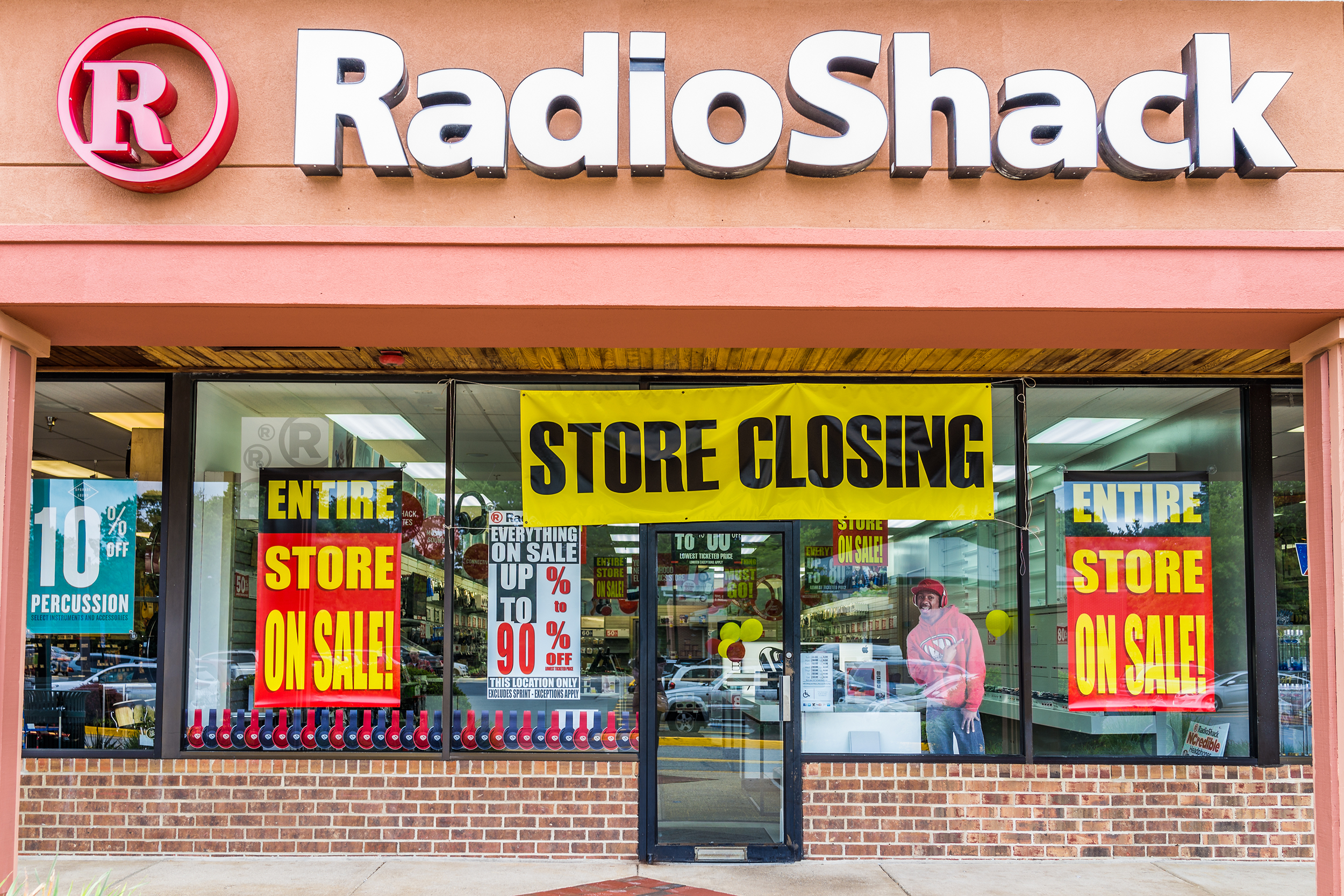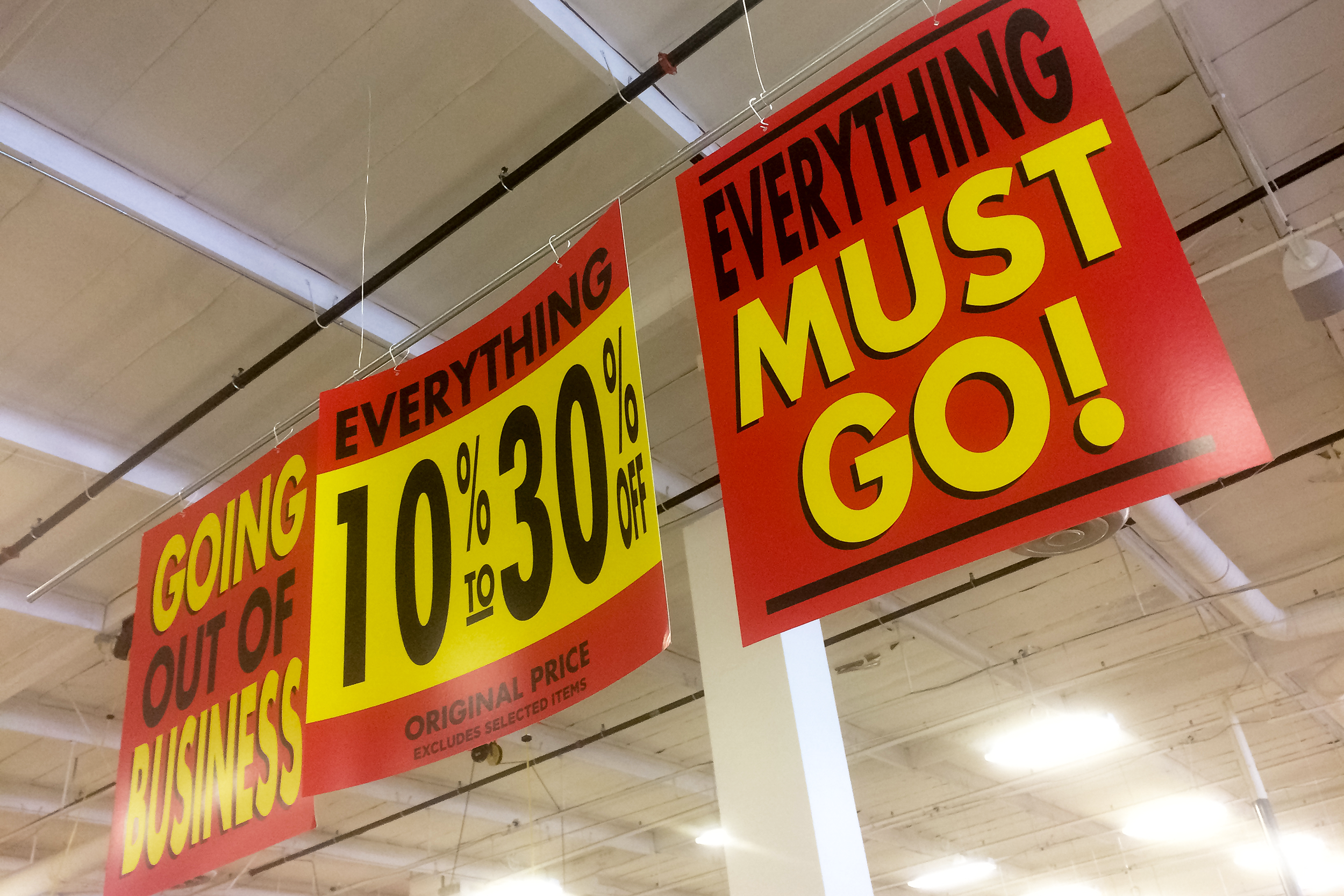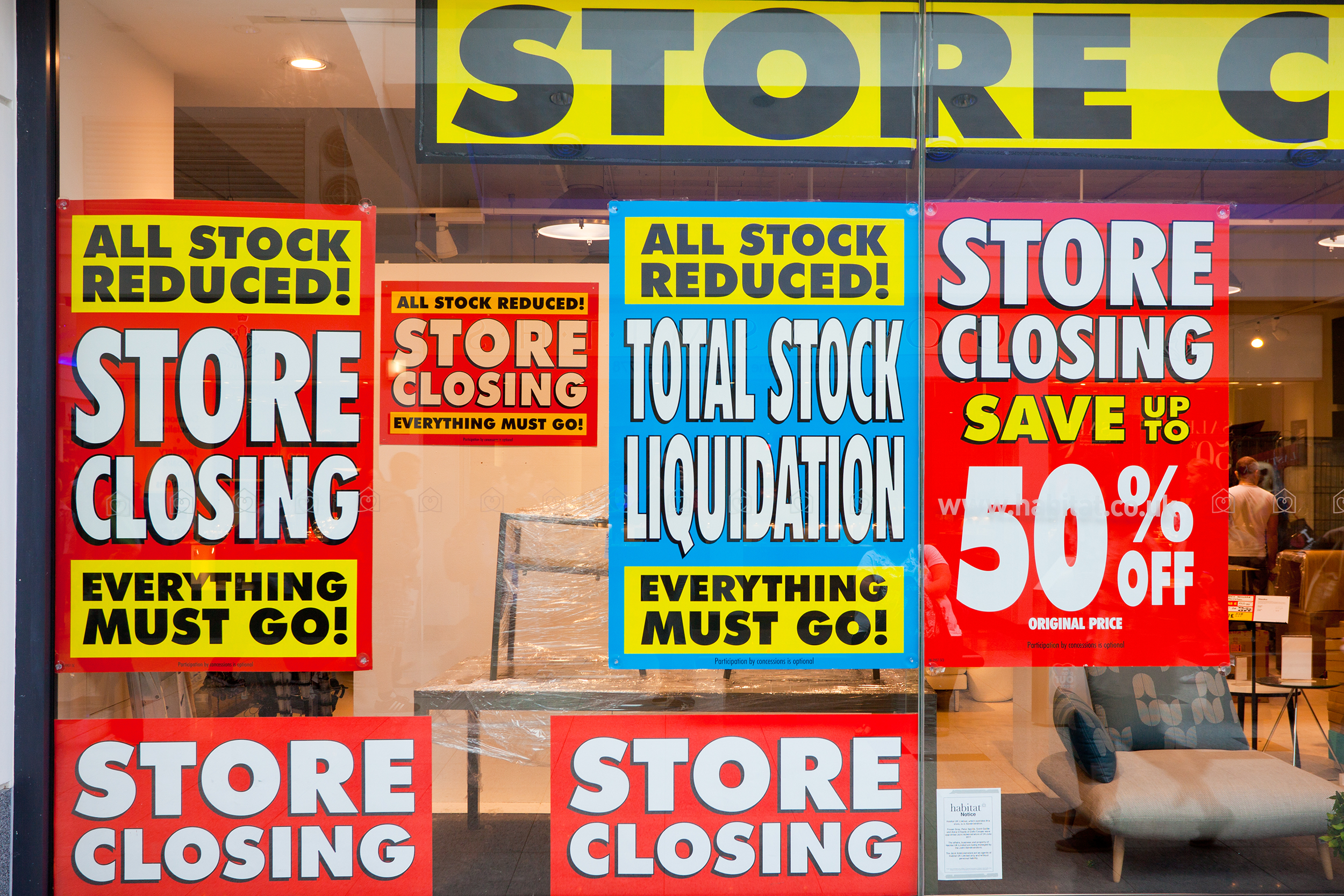Whether it’s Macy’s, Joann Fabrics, Kohl’s, or Dollar General, retailers have been announcing store closures left and right with no sign of slowing. And with so many major retailers on the ropes, we’re seeing more and more going-out-of-business sales.
While they may seem like fertile ground for hot bargains, liquidations are actually a minefield for shoppers who don’t do their homework. If you’re determined to sniff out a deal, read on — otherwise, you may fall for a “deal” that’s anything but.
Watch for ‘Gotcha’ Discounts

At the beginning of a going-out-of-business sale, stores or liquidators running the sales often hike prices just so they can “slash” them later, drawing in unsuspecting shoppers looking for a deal. For instance, The Consumerist documented how closing Radio Shacks raised prices 20% to 50% just so they could say they dropped them the same amount. When liquidators started sales at Linens ‘n Things, ABC News found new, higher price tags on top of older, lower ones.
Look for the Best Deals on Less-Popular Items

In this way, a going-out-of-business sale is much the same as a regular clearance sale. The steepest discounts are on the items in least demand, like out-of-season clothing. This is especially true if some of the store’s locations remain open — items that can still fetch a decent price might be moved to another store instead of being marked down. Brands with a lot of cachet may not allow their products to be sold during going-out-of-business sales at all.
Use Up Any Gift Cards ASAP

It may seem like a no-brainer, but if you have a gift card to a store that’s going out of business, use it right away — if you’re allowed to do so at all. It’s common for stores to continue accepting gift cards during liquidation sales, but shoppers are often given a deadline. For instance, when Toys R Us closed its stores, customers had about a month from the time of the announcement to use any gift cards.
Don’t Stop Comparison Shopping

Never blindly assume you’ll get the best deal at a going-out-of-business sale — whip out that phone and comparison shop. If a liquidation company uses the tactic of setting “original” prices higher than they were before the store announced it was closing, sale prices at other retailers may actually be lower.
Be Skeptical of Merchandise That Looks Out of Place

You might not expect to find rugs at an electronics store that’s closing, or furniture at a fashion retailer. But that happens when a liquidation company brings in more items from its warehouses to plump up inventory. Be especially cautious here — chances are, these are things that didn’t sell at previous going-out-of-business sales. They might be refurbished or otherwise slightly “off.”
Trending on Cheapism
Don’t Expect Good Deals Right Away

Toys R Us shoppers initially saw discounts as small as 5% or 10% off, leaving shoppers fuming that they could still get toys cheaper from Walmart, Target, or Amazon. This is par for the course at a going-out-of-business sale, when discounts progressively deepen the longer the sale goes — and it typically lasts at least a couple of months. But shoppers who wait for better discounts will have less inventory to choose from, so a middle-of-the-road approach may work best.
Inspect Items Thoroughly Before You Buy

Just in case the store hasn’t posted any signs saying this, we’ll put it in caps: Assume that ALL SALES ARE FINAL. Obviously, that means returning a sweater with a hole, or a toy that didn’t have all its parts, is a no-go. So look things over very carefully before you buy them, and consider shopping sales at still-healthy retailers for bigger purchases.
Choose Your Store Wisely

For a good variety of merchandise to choose from, it’s crucial to head to the right store. That means targeting locations that are traditionally busier — those are the ones that end up with the most items when liquidators distribute inventory. In other words, the stores you may typically avoid because of crowds may be your best bet when they’re going out of business.
Sign up for our newsletter
Don’t Count on Coupons, Rewards, or Any Other Offers

Don’t depend on that customer loyalty program. Parents expecting cash-back perks from the Babies R Us Endless Rewards Program were dealt a blow when the stores abruptly shut down the program as Toys R Us went into liquidation. Similarly, stores typically don’t accept any sort of coupons (either their own or manufacturers’) when they’re going out of business.
Pay With a Credit Card

A going-out-of-business sale isn’t the best place to buy any big-ticket merchandise because return policies have gone down the drain, but if there’s something you simply must have, use a credit card to pay. Filing a dispute with your credit-card company can offer an extra level of protection. You may not win, but at least you’ll have a chance to recoup your money if something goes wrong.
Be Savvy About Warranties

Extended warranties can offer peace of mind on purchases like appliances or electronics, but it’s probably not worth springing for that extra protection when a store is going out of business. For instance, if it goes under, Sears may no longer honor extended warranties as the company prioritizes paying creditors. But all is not lost: If the product comes with a manufacturer’s warranty, that will hold up regardless of whether you purchase it at a liquidation sale.
It’s Not a Deal If You Don’t Need It

Those huge neon signs are intentional: Going-out-of-business sales are designed to create a sense of urgency, and it’s easy to get swept up in the excitement. But, as always, it’s essential to ask yourself whether each potential purchase is something you’ll actually use. If you don’t need it, you’re not saving any money — you’re just spending it.
For more great shopping tips, please sign up for our free newsletters.






